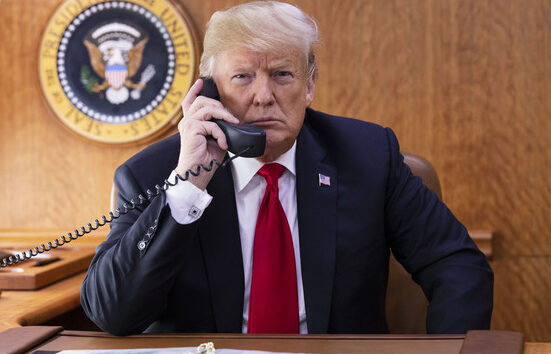Trump pardons rapper NBA Youngboy, former governors, a union leader, and more in a high-profile clemency wave
President Donald Trump issued a notable series of pardons on Wednesday, extending clemency to a mix of former politicians, a prominent rapper, a union leader, and a former Army officer who defied COVID-19 safety protocols. The pardons, confirmed late Wednesday by White House officials, underscore Trump’s continued willingness to use his presidential clemency powers to benefit allies, supporters, and figures with personal connections.
Among those pardoned was Kentrell Gaulden, better known as NBA YoungBoy, the Louisiana rap artist sentenced in 2024 to nearly two years in prison on gun-related charges and involvement in a prescription drug fraud ring in Utah. Gaulden expressed gratitude in a public statement, thanking Trump and pardon czar Alice Marie Johnson for “opening the door to a future” he has long worked toward. Johnson, herself a former inmate who received a high-profile pardon from Trump in 2018, now plays a key role advising the president on clemency decisions.
The pardons also included James Callahan, a New York union leader who pleaded guilty to failing to report $315,000 in gifts from an advertising company and was awaiting sentencing. Additionally, former Connecticut Governor John Rowland received a pardon; he resigned in disgrace following a corruption scandal and served 30 months in federal prison related to campaign finance violations.
Another notable beneficiary was Michael Grimm, a former New York Republican congressman who resigned after pleading guilty to tax fraud. Despite his legal troubles, Grimm was reelected in 2014 during his indictment but eventually served eight months in prison. Last year, he suffered paralysis from a horse-riding accident.
The clemency list also included Army Lt. Mark Bradshaw, convicted in 2022 for failing to comply with COVID-19 testing requirements before reporting to work. This pardon drew attention amid ongoing debates about pandemic-related military rules.
Trump’s pardons have repeatedly reflected his ties to high-profile Republicans, supporters, and donors, but also demonstrate the influence of Alice Marie Johnson. Johnson, convicted in 1996 on drug trafficking charges, became a central figure in Trump’s pardon efforts after celebrity advocate Kim Kardashian West helped secure her sentence commutation in 2018. Since then, Johnson has become the administration’s “pardon czar,” assisting in clemency recommendations.
Another prominent clemency move involved commuting the sentence of Larry Hoover, a former Chicago gang leader serving life at a Colorado supermax prison. Hoover was originally convicted in connection with a 1973 murder and a 1998 racketeering case, but later renounced his criminal past and petitioned for sentence reduction.
Trump’s pardon spree also included a high-profile clemency for Todd and Julie Chrisley, stars of the reality TV show Chrisley Knows Best. The couple was convicted of defrauding banks of over $30 million in loans. Video footage showed Trump personally informing their daughter of the pardon, highlighting the president’s frequent use of clemency to reward celebrity allies.
These pardons come amid ongoing criticism of Trump’s approach to clemency, with detractors arguing that many beneficiaries are personal allies or political donors rather than individuals deserving of mercy on merit. Supporters view the pardons as a way to correct perceived judicial overreach or excessive sentencing.
The White House has not released a full official list of pardons, but the pattern of recipients reflects Trump’s consistent strategy of rewarding loyalists and controversial figures alike.
